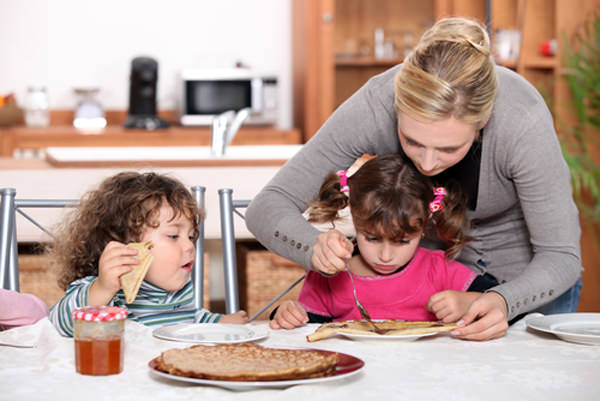Are you a member of the “clean plate club”? That’s the saying that always stuck with me when parents (and grandparents) push kids to finish their meal. That sort of mentality, while well-intentioned, may have lasting negative side effects.
New findings have shown that pushing children to eat everything on their plate has a direct link to obesity. The University of Minnesota has published a study that shows this forced eating can be linked to unhealthy eating habits when the child gets to adulthood. Interestingly, while these kids may be at a normal weight at the time, this changes later in life.

The researchers combined data from two studies including findings from EAT 2024 (Eating and Activity in Teens) and the Project F-EAT (Families and Eating and Activity Among Teens). Both of these gathered their data from asking about the eating habits of nearly 3,000 children and young adults. Each person was given a form that asked questions about weight and regular eating habits throughout the day. It wasn’t until the data from each individual study was compiled that the link to adult obesity was found.
According to the Centers for Disease Control, 17 percent of young children and adolescents are obese. This is roughly three times as high as it was when their parents were their age. More than half of the parents of the children included in the study were said to force their children to eat their meals entirely, whereas 30 to 40 percent of the same parents pushed children to continue to eat after being told they were full.
There didn’t seem to be a difference in whether this behavior occurred with parents of kids at a healthy weight or obese children. Fathers forced children to eat their entire meal more often than the mothers.
The takeaway from these findings is that forceful eating deprives children of learning how to respond to their body’s signals for being full. Also, there is a reaction from kids that is similar to other things they are forcefully told they can’t have. In this case, it’s dessert.
“Research has shown that when a parent places a restriction on a particular food item (i.e. no treats) that a child becomes more interested in consuming that food item and will often overeat that food when given the opportunity,” said researcher and lead author Katie Loth. “Instead, parents should be encouraged to allow their children to eat all foods in moderation.”
Also read:
Kids Mimic Their Friends’ Eating Habits
